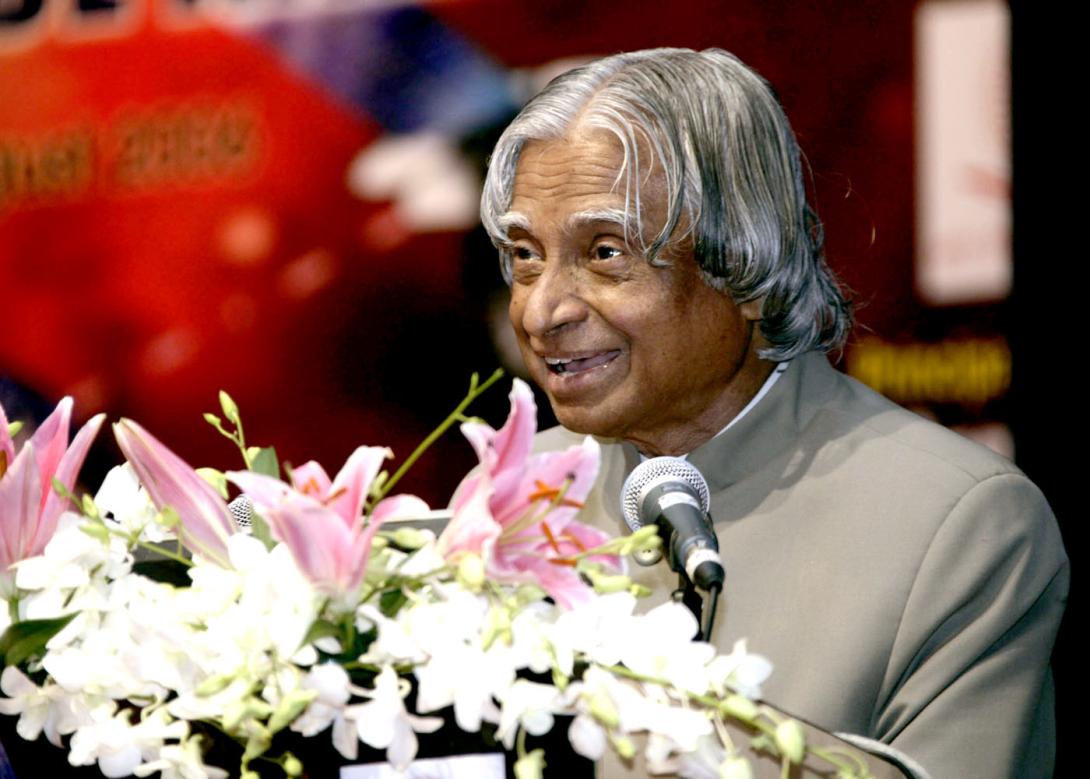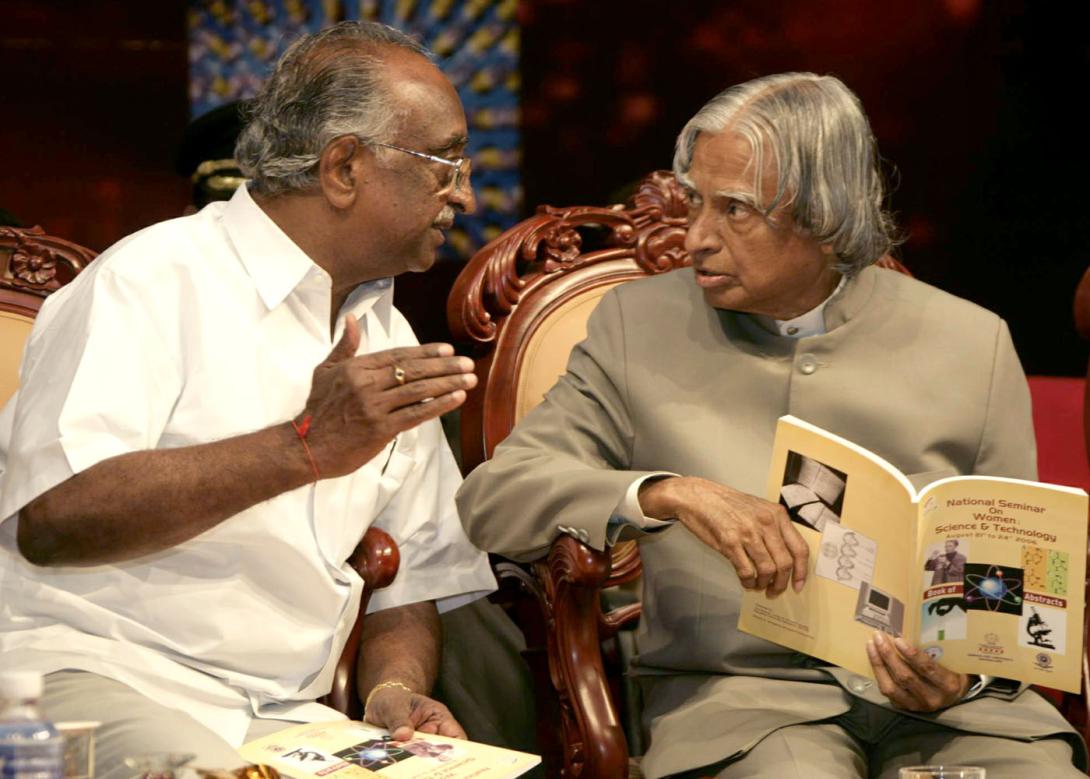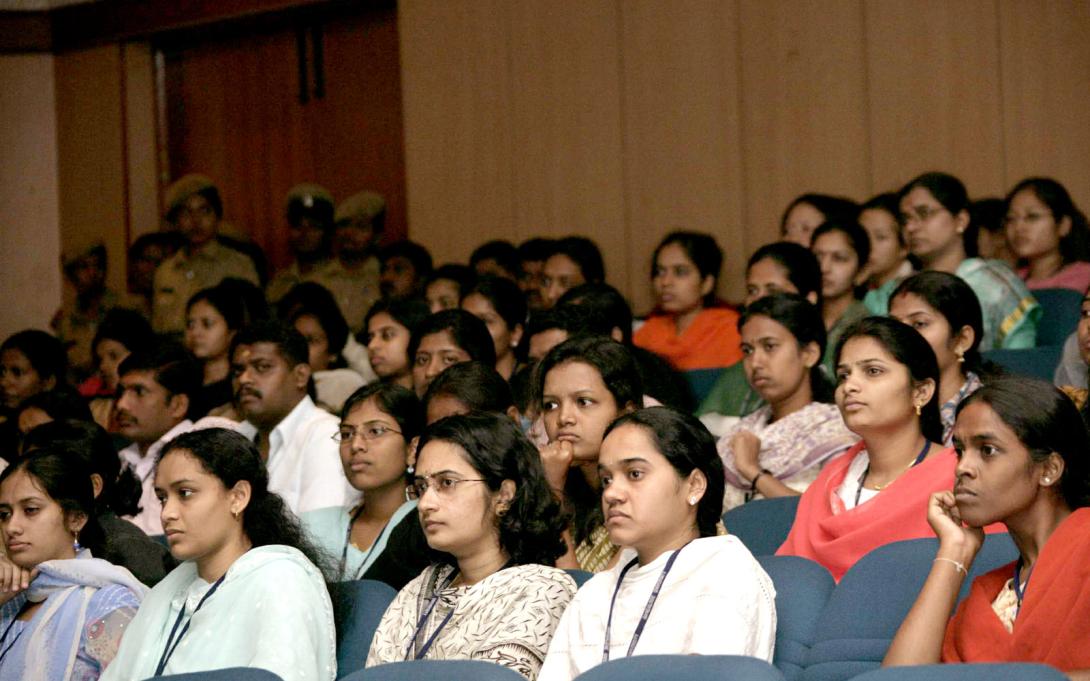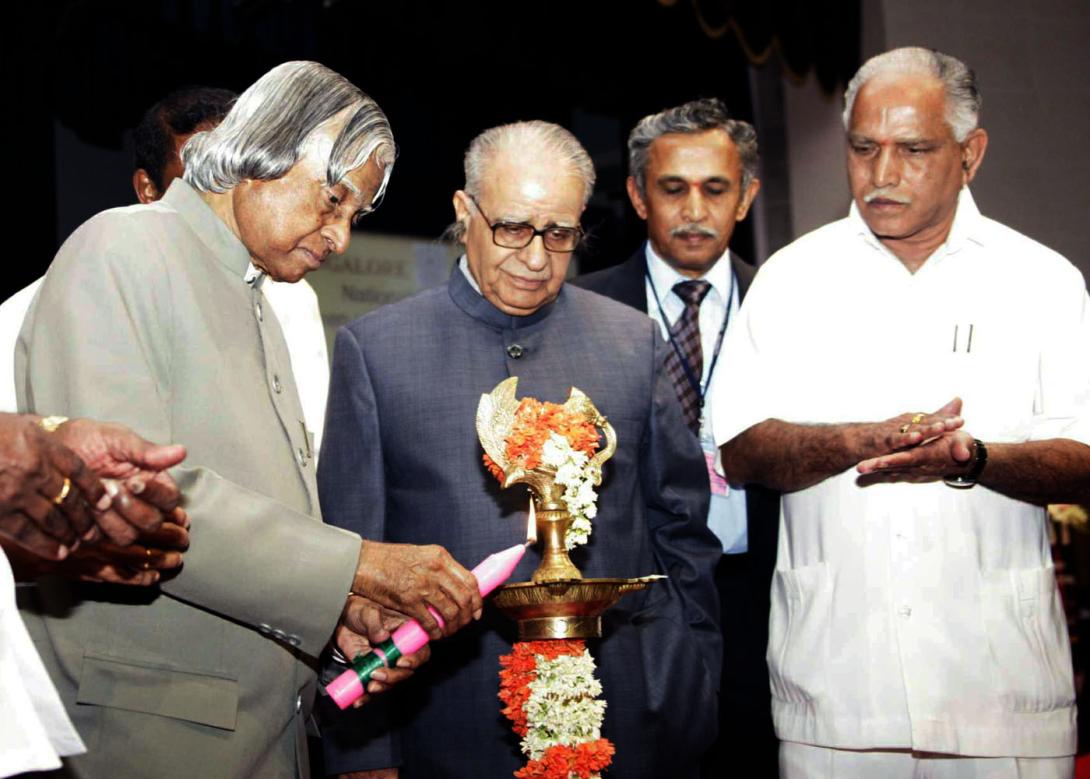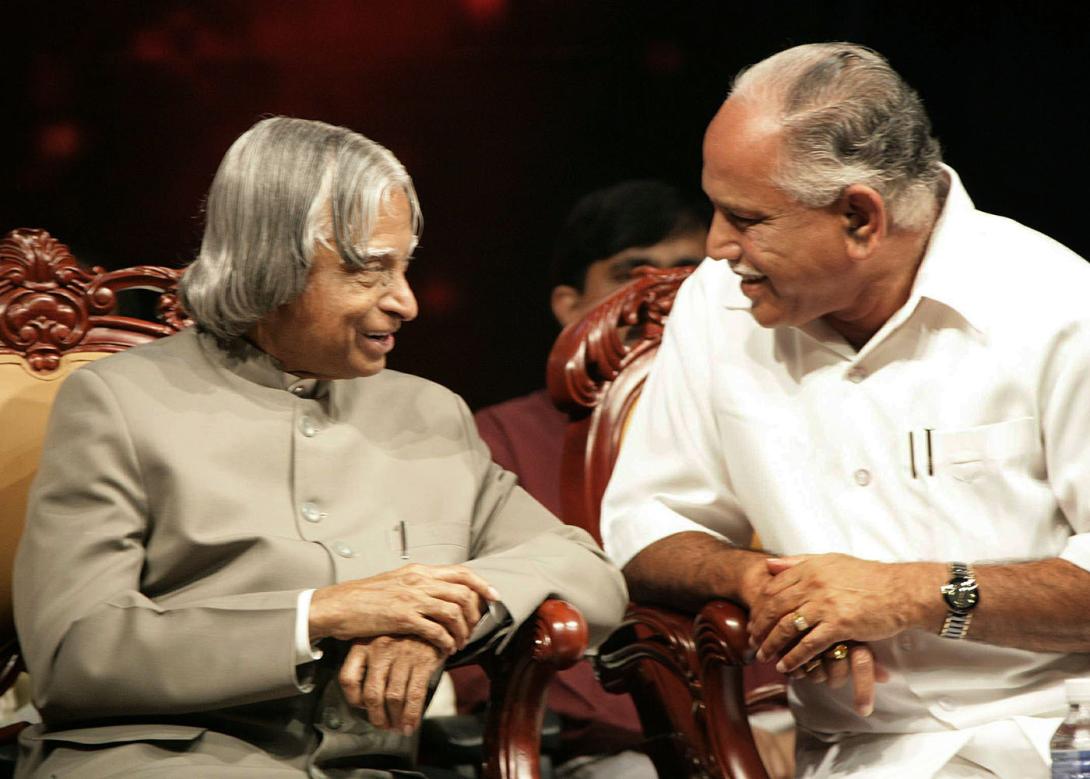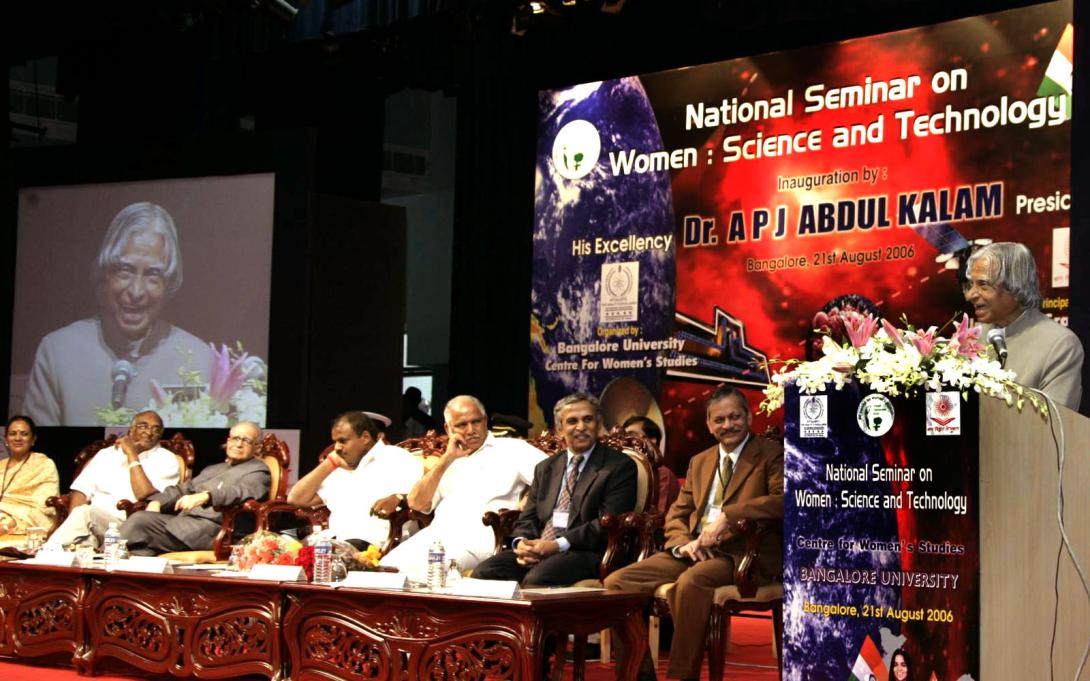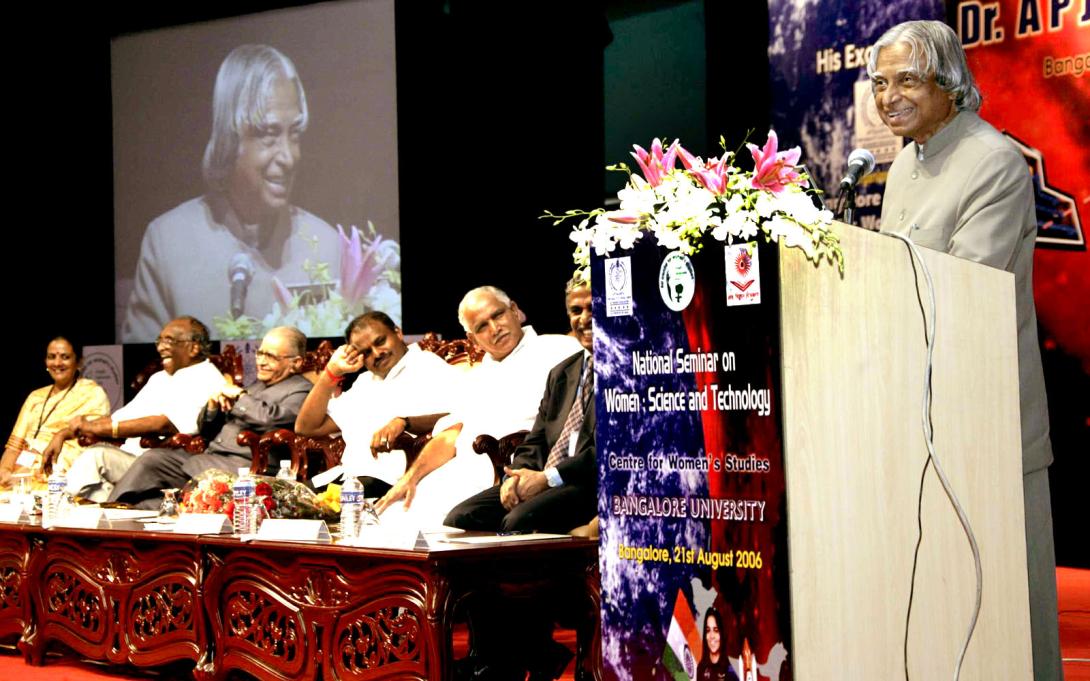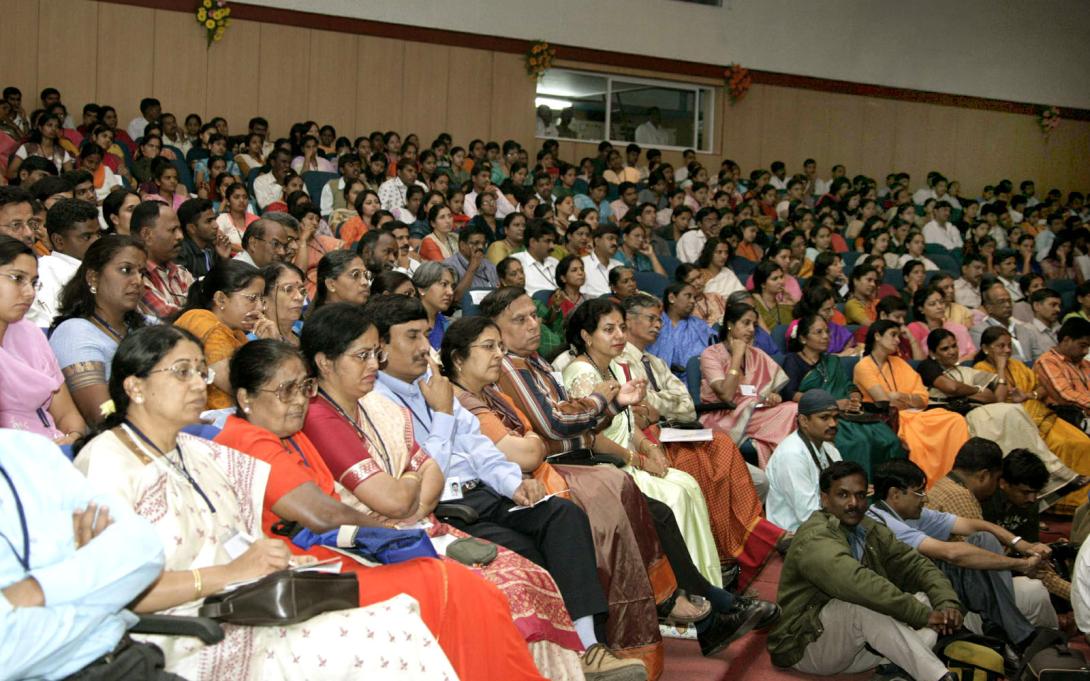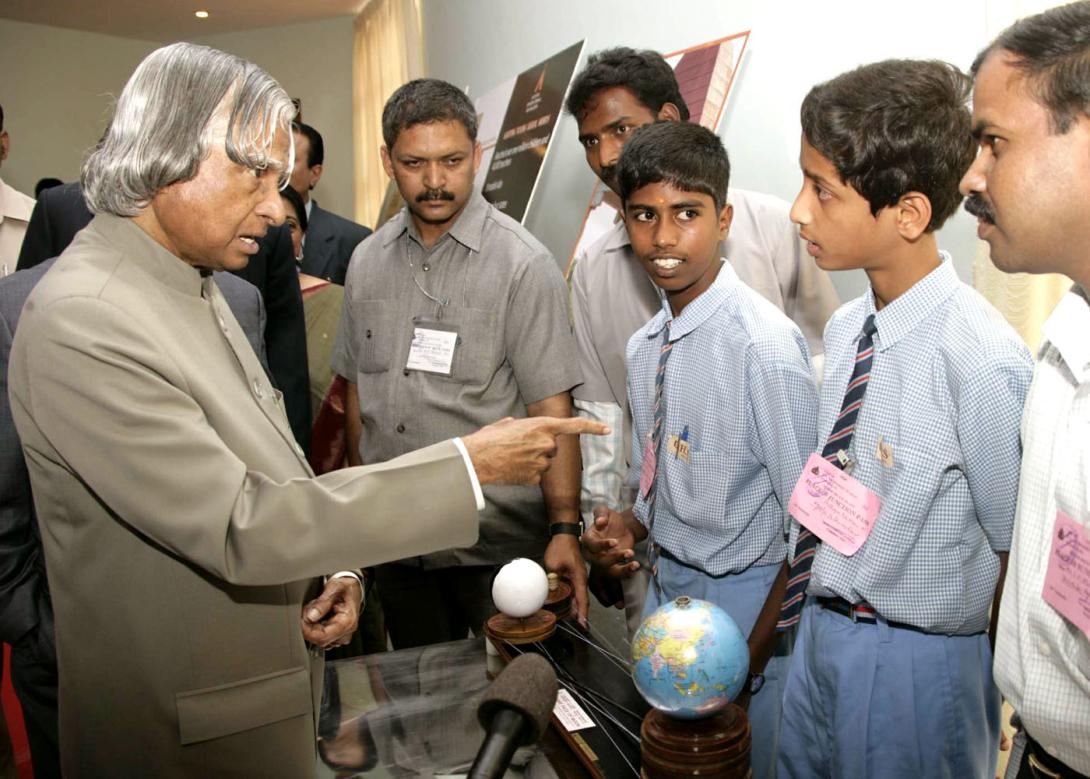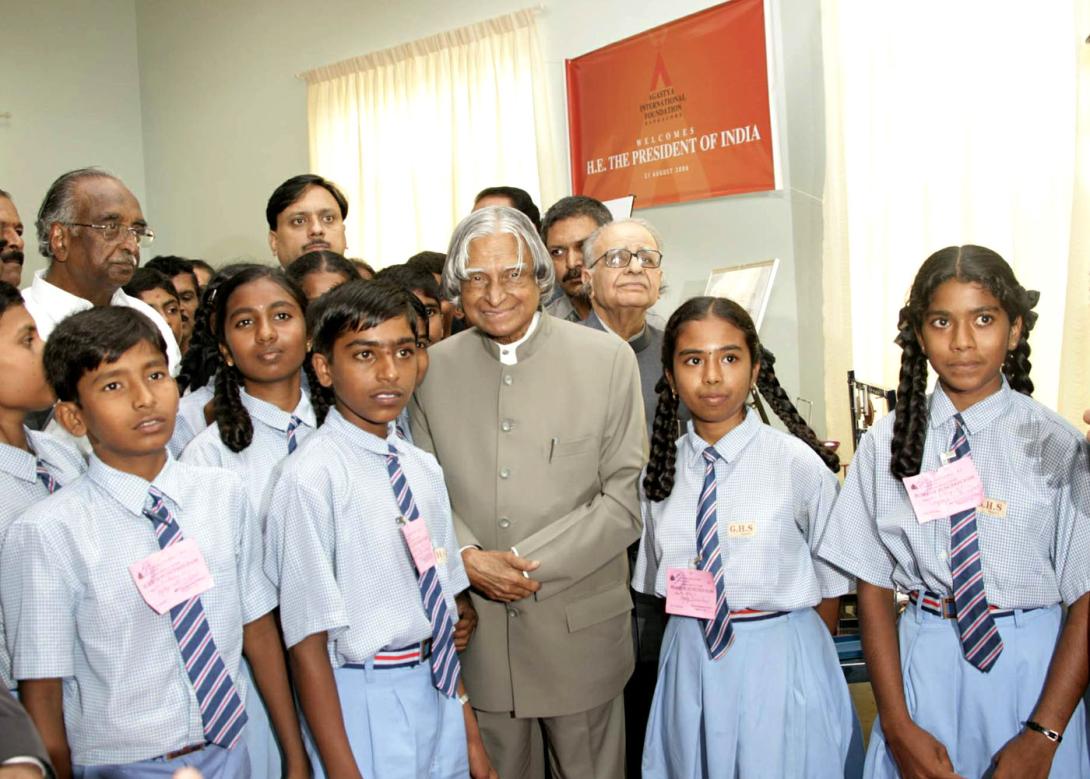Address at the Inauguration of the National Seminar on Women, Science and Technology, Bangalore
Bangalore : 21-08-2006
Emerging Women in Science
"Emerging woman has a lofty
and knowledge based pride"
I am delighted to participate in the Inauguration of the National Seminar on Women, Science and Technology organized by the Centre for Women Studies, Bangalore University. I convey my greetings to the Vice-Chancellor, Director, Centre for Women Studies, faculty members, scientists, technologists and other distinguished invitees. I am happy that the seminar will be reviewing the participation of women in science and technology and examine the dynamics of the situation. I would like to discuss some aspects of Science and Experience of Women Scientists in the nation and abroad through case studies of five scientists. The topic I have selected for discussion is "emerging women in science". When I was preparing for this talk, a recent incident came to my mind that has relevance to the topic I am going to present.
On 17th August 2006, I visited and interacted with the students of Kanya Maha Vidyalaya at Jalandhar in Punjab. This Vidyalaya has been started in the year 1886 and college education for women had commenced in Kanya Maha Vidyalaya in 1914. Presently, the college has a strength of over 2500 students. While interacting with the students I asked them what they would like to be after completing their education. About 10 students wanted to become doctors, 15 students wanted to become engineers, 30 students wanted to become administrators, five students wanted to become politicians whereas hundreds of students raised their hands when I asked the question how many of you would like to become teachers. I could see hundreds of children preferring to become teachers. This reveals how the way of teaching, the teachers way of thinking, parental guidance all leading to the conditioning of the children?s mind towards teaching as a career, even though the same school has created number of administrators, political leaders, engineers and doctors. Also the thinking process of the students is influenced by employment opportunities. Since I am in the midst of Women Scientists and Technologists I thought of sharing with you this information.
I would like to discuss Madam Curie's life which has been full of challenges. She was not afraid of the problems, she defeated the problem and succeeded. This experience of Madam Curie will definitely be an inspiration for all scientists of the present and future generations.
Madam Curie - a dream for every scientist
Madam Curie was a co-worker of Henri Becquerel during research, who discovered the properties of the element uranium. Curie came to know about those properties and set about investigating the effect, which she named "radio-activity" for her Doctorate research.
Marie Curie checked many other elements to determine whether they too were radioactive. She found one, thorium, and also came across a source of radiation in a mixture called "pitch-blend," which was much more powerful than either thorium or uranium.
Working together, it took Marie and her husband Pierre four years to isolate the radioactive source in the pitch-blend. Madam Curie used to carry large quantity of pitch-blend on her head for extracting few grams of material in the laboratory which needed tons of 'pitch-blend'. That few grams of the material was her discovery. Marie named it as radium. For the discovery of radium, Marie and Pierre won a Nobel Prize in Physics in 1903, which they shared with their friend A.Henri Becquerel. Shortly, Marie found that what she had discovered was not pure radium, but she was able to isolate the element itself after quite a struggle. For this work, she was given the Nobel Prize for Chemistry in 1911.
During her work, Marie discovered radiation could kill human cells. She reasoned that if it could kill healthy human cells, it could kill diseased human cells also and went about isolating radium for use in killing tumors.
In 1906 Pierre Curie was offered the position of director of the Physics Laboratory at the Sorbonne. Before he could take the position, however, he was run over by a carriage and killed. After her husband died, Marie was offered and took the position, the first woman to become director of a research laboratory. In our country time has come for talented women scientists to take up the position of directors of major scientific laboratories.
During the first World War, Marie Curie went to work for the French designing and building X-ray machines. Knowing that moving soldiers to a hospital before they needed surgery was not always possible, she designed the first mobile X-ray machine and traveled with it along the front lines during the war.
On July 4, 1934, Marie Curie died in Paris, killed by her own experiments. She died of radiation poisoning and may have been the first person to do so. Marie Curie had brought herself up from poverty, struggling to get her education and succeeding brilliantly. The work she did, she did with patience, often getting results only after years of careful experimentation, while struggling for money to support her work. For her struggles, she received two Nobel Prizes - the first woman to win even one. Through the knowledge she gained, thousands of lives have been saved. The courage and perseverance shown by Madame Curie in her pursuit of scientific mission and achieving successes are indeed remarkable and stimulating.
I have studied the professional profile of four women scientists of different institutions in our country. They shared their experience with my team and brought out how they came up in life with science as a career. All four of them are known to me through their scientific work. This study will reveal the societal attitude towards women in science which may lead to certain corrective actions.
Scientist with Technology Mission
Smt Rohini Devi is the senior most woman Scientist working in DRDO and is known to me for over two and half decades. She is the recipient of Best Women Design Engineer Award and has been declared best engineer from Andhra Pradesh She joined DRDO immediately after her college in the year 1977 from IIT Chennai and has been working for the last 29 years towards the development of advanced processed technologies, establishment of facilities and development of state-of-the art products which have to withstand the rigours of re-entry. Multi-directional pre-form technology is a closely guarded secret of the western world. By pooling up the research talent in the country through a consortium approach and nurturing the young minds, she could successfully develop products which have been put to operational use in Agni class of missiles. One of the interesting products which she developed is the carbon brake disc for LCA. The project team was wavering whether to follow the import option or to continue with the indigenous development with a strict time frame. All over the world, it has been reported that such a brake pad has not been developed apart from few developed countries. One of the leading manufacturer from the west challenged the programme that it will be nearly impossible to make in the country and they were offering a total solution at a very heavy price. Instead, the project team took the courage and encouraged the indigenous effort being piloted by Smt Rohini Devi. As expected in many such missions initially the product did not give the required wear rate though it was meeting the required brake performance. That is where the teams headed by Smt Rohini Devi worked hard for scientific solutions and through perseverant scientific endeavour overcame the barriers and realized the wear rate prescribed by the project. This technology solely developed in the country has numerous spin-offs and applications in the civilian sector. Now the same team is working on carbon nano-tubes and also developing functionally graded material which will eventually revolutionize the materials used in aerospace and defence.
This shows the courage innovative spirit and commitment of a women scientist to "make the impossible, possible". Smt Rohini Devi says her parents and teachers supported her fully during her education. She never took any advantage for being a women. She was the only women student in the engineering course but she never felt any different compared to the boys. She states that DRDO has provided an excellent working environment for women scientists. The scientists are sensitive to the problem of women and they provide them adequate encouragement and support so that women scientists can contribute their best for research and development. Through Rohini Devi?s experience the message we get is that progressive institutions nurture women scientists by providing a suitable environment.
Space Technologist
Now, I would like to talk about a senior scientist Smt. Geeta Varadan, Project Director, Special Projects. She has been awarded First Women Scientist Award by Astronautical Society of India. in 2006. She comes from a middle class family of six members. Her father had vision that the children should be given education so that they are able to stand on their own legs in times to come. He never distinguished a male child from a female child and gave equal opportunity to all the children and her mother stood like a pillar to enforce the will of her father. Smt. Geeta Varadan, was a high performing student in the school and the college. When she completed her graduation from Osmania University, her father insisted that she should complete her M.E before taking up a job. She did her ME in Indian Institute of Science, Bangalore and joined LRDE, a DRDO laboratory in Bangalore in 1976. She remembers the advise of her senior scientist Mr. Jaiswal that the young scientists normally should get the best of experience of many team members around her. She found all the members in the laboratory were helpful to her and enabled her to perform well in her task. While her husband was moved to Hyderabad for better prospects she also got a posting to Hyderabad. She took up a job in NRSA and she had a unique experience in that establishment. When the teams were being formed for the first operational Remote Sensing Satellite (IRS-1A), her name was no where there. She went and enquired from her senior why her name was excluded. She was told that since husband was in Saudi Arabia she may leave the job anytime and go. She told her senior that, she was in NRSA not because of her husband but by her own merit. She also committed that she will not leave the job till she completes the assignment. This ensured her inclusion in the project team. Later in 1984, she had to ask for a transfer to Bangalore in view of her husband coming back to Bangalore. Dr.Y S Rajan who was the then Scientific Secretary, ISRO told her that she could not be moved to Regional Remote Sensing Service Centre at Bangalore since she was a hardware specialist. For this, she responded that she will undertake any job assigned to her and ensure its completion successfully. On this assurance she was transferred to Bangalore and she also became the leader for establishing 9 remote sensing centres throughout India. Presently, she is working as the Project Director for Special Projects at ISRO Headquarters. Geeta Varadan is one of the well known experts in remote sensing satellites. In this capacity, I had met her and found to be very scientifically talented. According to Smt. Geeta Varadan, for success, one should work very hard without expecting any return, recognition will come by itself. Never ask any special favour being a lady. Ladies have to put twice as much effort as a man to be recognized at par with him, since ladies have dual responsibility. The message we understand from Smt. Geeta Varadan is knowledge with courage is essential for building a high scientific career.
Excellence in Brain Research (Neuro Science)
I was studying the scientific profile of Prof Vijayalakshmi Ravindranath who is presently working as Director, National Brain Research Centre and is a well known Brain research scientist in India. She has been a hard working student right from her childhood. She says that Mr. A.K. Raman, her father influenced her by instilling in her the value of hard-work, striving for excellence and the importance of integrity and honesty. He also believed that education was very necessary for women and that it would always prove to be a valuable possession rather than inherited wealth. He encouraged her to study science much against the wishes of her grandparents who were very keen to get her married immediately after graduation. Due to her father?s influence she completed her Master?s degree in Chemistry and got married to Dr. B. Ravindranath who is also a scientist. Success of Dr. Vijayalakshmi Ravindranath in many of her projects was the result of the support and encouragement that she received from her husband. He advised her to always stand up for what she believed in and not to ever compromise her principles. She claims that family support is very essential especially for a women scientists wherein professional success is rare and failures and frustration are often a way of life. In addition to her family members she had excellent mentors, her Ph.D supervisor Dr. Raghavendra Rao (at CFTRI, Mysore) and Dr. Michael Boyd, her mentor during her Post-Doctoral Fellowship in USA who have supported and encouraged her. After her return from US, in the initial years of her scientific career in India, Dr. Boyd had helped her tremendously by often sending chemicals and other resources that ensured that her research could go on. One factor Dr. Vijayalakshmi feels is that there is a lack of consultation with women scientists in organizations which makes them feel isolated in the system. The message we get from Dr. Vijayalakshmi?s experience is that the organisation has to take the women scientist into confidence and provide them adequate space for scientific and technical communication.
Excellence in Science Management
Now, I would like to share the experience of Dr. Manju Sharma, Director, Indian Institute of Advanced Research, Ahmedabad which is engaged in the research of biology and biotechnology. During her tenure as Secretary, Department of Biotechnology she had established seven new institutions in bio-technology in a record time of seven years in the country. These new institutions are today the premier research centres developing new products like vaccine, diagnostic kits and therapeutics. These institutions have also trained a large number of young scientists.
Dr Manju Sharma?s experience shows that proper guidance in the scientific area is very important. In the case of Dr. Manju Sharma, she had to leave basic scientific research which she loved and was led to take up science management. According to her, women find it very difficult to reach the top because of the selection process. Particularly, it has been noted that the most brilliant women go up to a particular point. They are hardly made heads of the institutions. Women have to work twice as much as their male counterparts to reach the same position. She says many senior scientists were responsible for her growth. Such type of environment is essential for nurturing women scientists. According to her the performance of women scientists needs to be appreciated through National recognition in the right time. Dr. Manju Sharma feels that what is very important in our country is that there has to be a conscious effort on the part of government, organizations, research institutions and industry to understand that women constitute 50% of our human resource and we have to bring them into the mainstream of development and allow them to flourish and blossom for enabling their full potential to be available for the growth of the nation. Dr. Manju Sharma?s life is full of success in science management in the midst of many organizational challenges.
Conclusion
Friends, I talked to you about the life of Madam Curie who is a unique scientist who sacrificed her life in scientific discovery, who is known in the field of radiation and radium discovery. Her life is full of struggles, but the results of science gave her happiness and strength. Later I discussed about the profiles of four women scientists from India so that you will know the dynamics of Indian science with reference to women scientists. While the experience of Rohini Devi and Geeta Varadan indicate that the organisation gave an environment for growth irrespective of the gender, the work of Dr Vijayalakshmi led her to succeed in specific areas because of her right type of mentors during her scientific careers. Dr Manju Sharma?s life in science management is unique which provides an important message to the nation, how top management in science and government have to be generous in recognizing and nurturing women scientists. Also the five examples clearly bring out the successful women scientists are those who demanded their due, were committed and also fulfilled their responsibilities. So friends, what I have discussed is a small sample in the world of science and technology. Definitely all women scientists can play an important role in the national development.
I inaugurate the National Seminar on Women: Science and Technology. I am sure that this seminar will come up with very innovative and practical ideas to make the society benefit from women scientists. The number of women scientists? world over has been growing at a faster pace. Removing any impediments that come in the way of our harnessing this vast pool of brilliant, hardworking and dedicated knowledge power, should be the focus of this Seminar.
My best wishes to all the participants of this Seminar for success in their mission of creating an environment which will enable promotion of excellence among women scientists and technologists for maximization of their contribution to national development.
May God bless you.

